
How Does Alcohol Affect Your Gut?
Have you ever considered the effects of alcohol on gut health when enjoying a glass of wine or beer? We often consume alcohol at parties, celebrations, or even during quiet moments alone. However, it wasn’t until I started experiencing ongoing digestive issues that I realized the profound impact alcohol can have on gut health. Alcohol doesn’t just cause temporary discomfort; it can lead to a series of serious gut-related problems.
Consuming alcohol can exacerbate intestinal inflammation, contributing to significant health issues. It has been linked to chronic liver disease, brain disorders, gastrointestinal cancers, and various bowel problems. Alcohol intake can also increase intestinal permeability, compromising both immune and digestive health. Even a single night of heavy drinking can harm the gut, causing erosion and heightened gut permeability.
Let’s delve into how alcohol influences gut health. It disrupts the balance of gut bacteria, encourages bacterial overgrowth, and weakens the immune system. These changes can considerably affect our overall health—sometimes in subtle ways that we might overlook immediately but certainly feel over time.
Key Takeaways
- Alcohol-induced intestinal inflammation can lead to seve health conditions, including liver disease and inflammatory bowel disease.
- Changes in gut microbiota composition due to alcohol consumption promorete gut dysbiosis and bacterial overgrowth.
- Even a single episode of heavy drinking can cause significant intestinal damage and increased gut permeability.
- Alcohol consumption disrupts the balance between beneficial and harmful gut bacteria.
- Increased gut permeability caused by alcohol can expose the liver to harmful endotoxins, raising the risk of liver injury.
Alcohol Gut Health Effects: The Role of Alcohol in Intestinal Inflammation
Drinking alcohol can have a significant impact on gut health. For example, it can trigger intestinal inflammation, which may lead to various health problems. Understanding how alcohol harms the gut is essential to managing these risks and adopting healthier drinking habits.
Pathways of Inflammation in Alcohol Gut Health Effects
Excessive alcohol consumption over time can cause inflammation originating in the gut. Alcohol and its byproducts, such as acetaldehyde, damage the intestinal lining, making the intestines more “leaky.” In addition, too much alcohol stimulates certain cells in the liver, which increases inflammation throughout the body. This inflammation can result in organ damage, leading to alcohol-induced organ failure.
Alcohol’s Impact on Gut Health: Microbiota and Intestinal Permeability
Alcohol significantly disrupts the balance of gut bacteria, leading to a condition known as dysbiosis. This imbalance intensifies gut-derived inflammation. Specifically, alcohol consumption can cause an overgrowth of harmful bacteria and increase intestinal permeability, making the gut more “leaky.” As a result, toxins enter the bloodstream, negatively impacting overall health. Individuals with inflammatory bowel disease (IBD) are especially vulnerable. For instance, 62% of IBD patients who are not in an active disease phase still consume alcohol, and 75% of these patients report that alcohol worsens their gut symptoms.
Systemic Effects of Alcohol-Induced Gut Inflammation
The effects of gut inflammation caused by alcohol can extend throughout the body. Excessive alcohol intake weakens the immune system, making the body more vulnerable to infections. Even a single episode of heavy drinking lowers the body’s defenses against illness. Over time, this leads to a higher risk of infections and other health complications, including liver disease, pancreatitis, and cardiovascular issues.
| Condition | Prevalence in Alcohol Consumers | Health Impacts |
|---|---|---|
| Inactive IBD | 62% | Worsened GI symptoms |
| IBD (with worsened GI symptoms) | 75% | Increased intestinal inflammation |
| IBS (with worsened GI symptoms) | 43% | Increased risk of GI disorders |
| General US population | 61% | Varied health impacts |
Gut Microbiome Response to Alcohol and Its Health Effects
Alcohol can disrupt the balance between beneficial and harmful bacteria in our gut. This imbalance, known as bacterial dysbiosis, can contribute to various health issues. As the composition of gut bacteria shifts, the risk of inflammation and gut-related diseases increases.
Alcohol Gut Health Effects: Changes in Bacterial Composition
Research indicates that alcohol alters the composition of gut bacteria, increasing the presence of harmful bacteria. For example, a study by Engen et al. (2015) revealed significant changes in gut bacteria due to alcohol consumption, negatively impacting gut health. Similarly, a survey by Mutlu et al. (2012) found an increase in Firmicutes and a decrease in Bacteroidetes in individuals with alcoholism, demonstrating significant shifts at the phylum level.
At the family level, there is an observed rise in Enterococcaceae, Lactobacillaceae, Streptococcaceae, and Enterobacteriaceae, along with a reduction in Lachnospiraceae and Fusobacteriaceae, as reported by Chen et al. (2011) and Addolorato et al. (2020). These microbiota alterations can exacerbate existing gut health problems.
Alcohol Gut Health Effects: Dysbiosis and Bacterial Overgrowth
Alcohol-related dysbiosis fosters an environment conducive to excessive bacterial overgrowth and heightened endotoxin levels. For example, a study by Mutlu et al. (2009) demonstrated that long-term alcohol consumption in rats caused a substantial disruption in the balance of colon bacteria.
This imbalance not only affects bacterial populations but also impairs gut function. Elamin et al. (2014) found that alcohol compromises the gut barrier, leading to increased bacterial growth and inflammation. To mitigate these effects, it is crucial to explore ways to counteract alcohol’s impact on gut health.
Alcohol Gut Health Effects: Impact of Metabolites on the GI Tract
Alcohol-related dysbiosis promotes excessive bacterial growth and a subsequent rise in endotoxins. For instance, Mutlu et al. (2009) demonstrated in their study on rats that long-term alcohol consumption significantly disrupted the bacterial balance in the colon, further contributing to gut health issues.

When we look more closely at how the body processes alcohol, we see that it transforms ethanol into acetaldehyde, a highly toxic byproduct. This conversion primarily takes place in the liver but also affects the intestines. This process generates reactive oxygen species that damage cells and inhibits the proper functioning of digestive enzymes, further aggravating issues in the gastrointestinal (GI) tract.
Another pathway of alcohol metabolism involves the formation of fatty acid ethyl esters (FAEEs). These esters are harmful because they can disrupt cell membranes and interfere with the functioning of the GI tract. Elevated acetaldehyde levels, resulting from both pathways of alcohol metabolism, can increase the risk of colon cancer, highlighting the dangers of frequent alcohol consumption.
Chronic inflammation in the intestinal walls is a common result of prolonged alcohol consumption. This condition, known as alcohol-associated bowel disease (ABD), worsens as toxic substances from the gut leak into the bloodstream, leading to further inflammation and liver damage.
| Health Impact | Pathway | Consequence |
|---|---|---|
| Alcohol Metabolism in Intestines | Oxidative, Nonoxidative | Creation of ROS, Acetaldehyde, FAEEs |
| Enzyme Inhibition | Alcohol-Related Digestive Enzymes Inhibition | Impaired Function, Increased Acetaldehyde |
| Systemic Inflammation | Increased Gut Permeability | Endotoxemia, Liver Fibrosis |
| Risk of Cancer | Acetaldehyde Accumulation | Colorectal Carcinogenesis |
Excessive alcohol consumption results in 3 million deaths globally every year. Alarmingly, 21.3% of these deaths are attributed to diseases of the stomach and intestines. These statistics emphasize the importance of understanding how alcohol-induced changes in gut bacteria can significantly impact the GI tract and overall health.
Alcohol Gut Health Effects: Short-term vs. Long-term Impact
Let’s first explore how alcohol impacts our gut health in both the short term and over an extended period. It is crucial to understand the distinction between short-term and long-term drinking habits and their effects on our health.
Short-term Effects of Alcohol on Digestion
For instance, alcohol consumption can quickly disrupt digestion. Approximately 20% of alcohol is absorbed directly into the bloodstream through the stomach. As a result, this process inhibits your body from producing the enzymes necessary for proper digestion. Moreover, your stomach may struggle to move food efficiently, leading to impaired digestion and nutrient absorption.
Long-term Effects: “Leaky Gut” and Chronic Health Issues
However, with prolonged alcohol consumption, the damage worsens. Over time, your gut may begin to allow undigested food and toxins to enter the bloodstream. This condition, often called a “leaky gut,” can trigger immune system issues and food intolerances.
Potential Benefits of Alcohol in Moderation
On a positive note, not all alcohol-related effects are negative. For example, red wine contains polyphenols that may promote the growth of beneficial gut bacteria. Nevertheless, excessive drinking negates these benefits. Thus, moderation is essential.adverse
Cancer Risks Even at Low Levels of Alcohol Consumption
Additionally, even low levels of alcohol consumption—such as one drink per day—can increase the risk of certain cancers, including cancers of the mouth, throat, and esophagus.
Tracking Alcohol’s Effects on Gut Health
In order to gain a clearer understanding of alcohol’s effects on your body, you may want to track these changes. Thankfully, various apps are available that can help you monitor how alcohol consumption influences your gut health over time.
Here’s a quick summary of the short-term and long-term effects of alcohol on gut health:
| Aspect | Short-term Effects | Long-term Effects |
|---|---|---|
| Alcohol Absorption | Quick absorption through the stomach lining | Increased dependency and tolerance |
| Digestion | Impaired enzyme production | Persistent nutrient absorption issues |
| Gut Lining | Minimal immediate impact | Increased permeability (“leaky gut”) |
| Microbiome Health | Temporary dysbiosis | Long-lasting dysbiosis and bacterial overgrowth |
Long-term alcohol consumption is concerning due to its widespread impact. More than half of people in the UK have recently consumed alcohol, and many drink at harmful levels. Alcohol is a leading cause of liver disease, pancreatitis, and other serious health problems.
Conclusion
Drinking alcohol can harm your gut health in many ways. It disrupts the gut and causes inflammation, which also affects the liver. Research shows that 59% of liver disease cases were due to alcohol consumption as of 2013. Additionally, alcoholism alters the balance of good bacteria in the colon.
However, there is hope. Being mindful of how much you drink can help maintain gut health. It’s important not to overconsume alcohol, as some individuals get half their daily calories from it, even though alcohol lacks the essential nutrients the body needs. Understanding how alcohol causes gut issues and inflammation highlights the importance of drinking less to support your gut microbiome.
Taking probiotics may help repair some of the damage caused by alcohol. For example, one study found that probiotics improved alcoholic hepatitis by 27%. Additionally, giving rats oats reduced alcohol-induced liver damage by 33%, which also prevented their guts from leaking. These studies demonstrate that, although alcohol presents challenges to gut health, taking proactive steps can make a significant difference. Therefore, we can better protect our gut by drinking responsibly and incorporating probiotics into our diet. Ultimately, following this advice can lead to a healthier relationship with alcohol.
FAQ
Q: How does alcohol consumption affect gut health?
A: Alcohol changes the gut’s natural state. It can harm the gut lining and upset the balance of gut bacteria. These changes can cause serious health problems like liver disease and inflammation.
Q: What are the pathways through which alcohol triggers intestinal inflammation?
A: Drinking alcohol can lead to inflammation in the gut. This happens because alcohol messes up the gut’s balance. It damages the gut lining and affects the good and bad bacteria.
Q: How does alcohol affect intestinal microbiota and permeability?
A: Drinking alcohol makes the gut wall leaky and shifts gut bacteria to harmful types. This allows toxins to enter the bloodstream, causing inflammation all over the body.
Q: What are the systemic effects of intestinal inflammation caused by alcohol?
A: Intestinal inflammation from alcohol can damage organs and lead to severe diseases. It weakens the immune system and affects your overall health.
Q: How does the gut microbiome respond to alcohol consumption?
A: Alcohol disrupts the gut’s healthy balance. This leads to an overgrowth of harmful bacteria. Such changes can harm your gut health and cause inflammation.
Q: What changes in bacterial composition does alcohol cause?
A: Drinking alcohol favors harmful bacteria over good ones, causing an imbalance. This can result in inflammation and digestive problems.
Q: What is dysbiosis, and how does alcohol contribute to it?
A: Dysbiosis means your gut bacteria are out of balance. Alcohol makes this worse by increasing bad bacteria. This can trigger inflammation and health issues.
Q: How do alcohol and its metabolites impact the GI tract?
A: Alcohol disrupts the digestive system. It stops digestive enzymes from working well and causes inflammation in the gut.
Q: What are the short-term and long-term effects of alcohol on gut health?
A: In the short term, alcohol affects digestion and nutrient uptake. Over time, it can damage the gut wall and cause chronic inflammation. However, moderate red wine might help the gut microbiome due to its polyphenols.
Q: Can probiotics or synbiotics help mitigate alcohol-induced gut health issues?
A: Probiotics and synbiotics might help with alcohol-related gut issues. Still, drinking less alcohol is best for your health.
Source Links
Alcohol and Gut Inflammation
- Alcohol and Gut-Derived Inflammation
- Alcohol and Gut-Derived Inflammation | Alcohol Research: Current Reviews
- The link between inflammation, bugs, the intestine and the brain in alcohol dependence – Translational Psychiatry
- Alcohol-associated bowel disease: new insights into pathogenesis
- Alcohol’s Impact on the Gut and Liver
Effects of Alcohol on the Gut and Digestive System
- Effect of alcohol consumption on the gut – PubMed
- Pattern of Alcohol Consumption and its Effect on Gastrointestinal Symptoms in Inflammatory Bowel Disease
- Alcohol and the Digestive System
- Alcohol And The Digestive System – Alcohol & Gut Health
- Alcohol & The Digestive System – Guts UK
- Alcohol’s Role in Gastrointestinal Tract Disorders
Alcohol and Gut Microbiome
- The Gastrointestinal Microbiome: Alcohol Effects on the Composition of Intestinal Microbiota
- Frontiers | Gut Microbiome Dysbiosis in Alcoholism: Consequences for Health and Recovery
- Frontiers | Gut microbiota dysbiosis: The potential mechanisms by which alcohol disrupts gut and brain functions
- Alcohol or Gut Microbiota: Who Is the Guilty?
- Alcohol Addiction, Gut Microbiota, and Alcoholism Treatment: A Review
igamingpro
Wonderful web site Lots of useful info here Im sending it to a few friends ans additionally sharing in delicious And obviously thanks to your effort
Belli Health
Thank you. Your feedback is very welcome. Any topics or questions you have, please don’t hesitate to share.
Techarp
Techarp I very delighted to find this internet site on bing, just what I was searching for as well saved to fav
Belli Health
Thank you very much for your kind words and feedback. Any topic recommendations would be greatly appreciated as it’s for you, the audience to make this an interesting website.
businesstrick
certainly like your website but you need to take a look at the spelling on quite a few of your posts Many of them are rife with spelling problems and I find it very troublesome to inform the reality nevertheless I will definitely come back again
Belli Health
You are absolutely correct and I went through all my published blogs and edited/fixed, etc. Thank you very much for your constructive criticism! I truly welcome that!





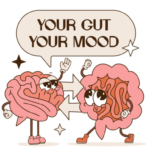



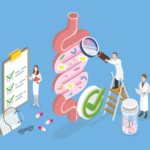







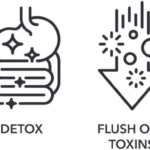
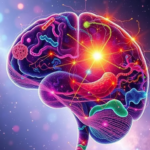


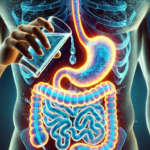
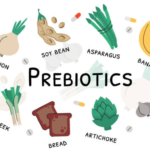
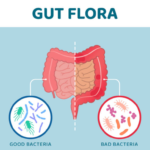









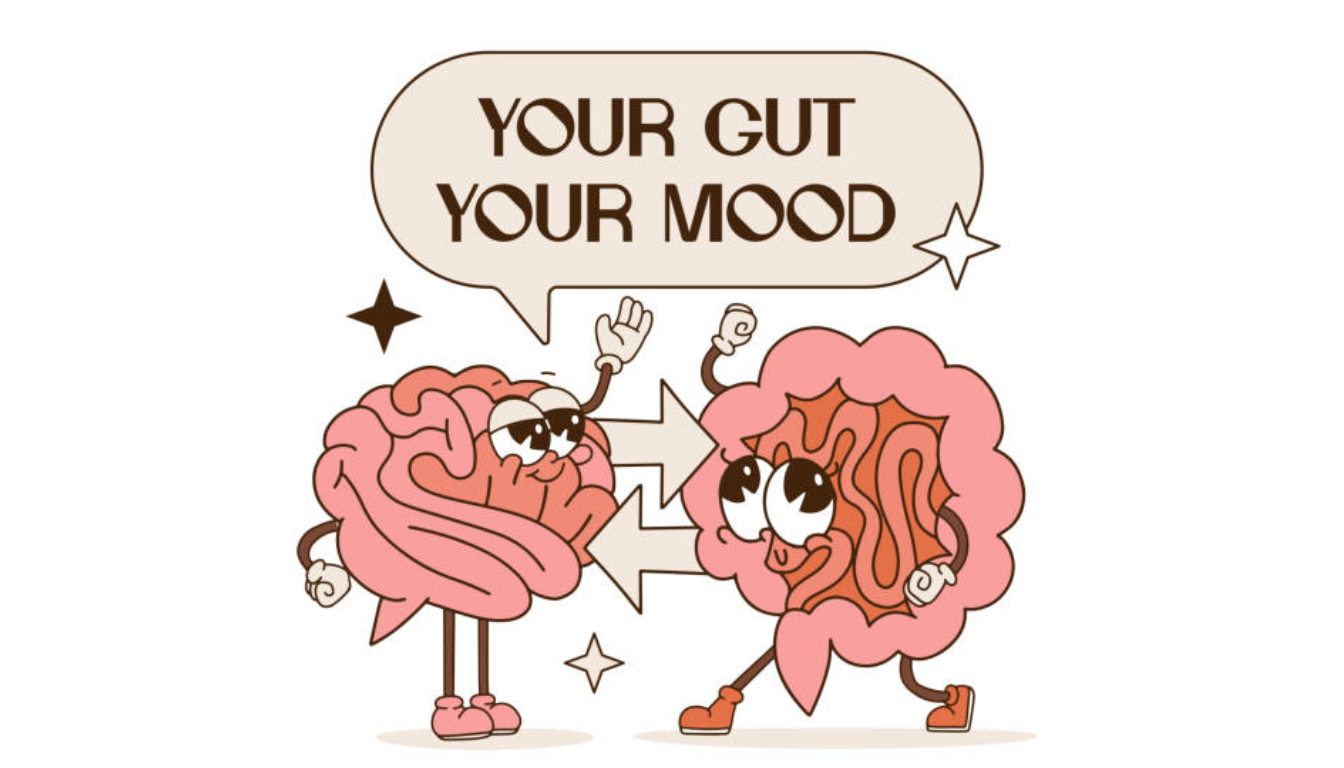






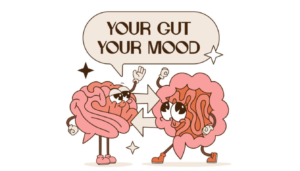



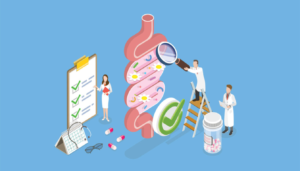
6 comments